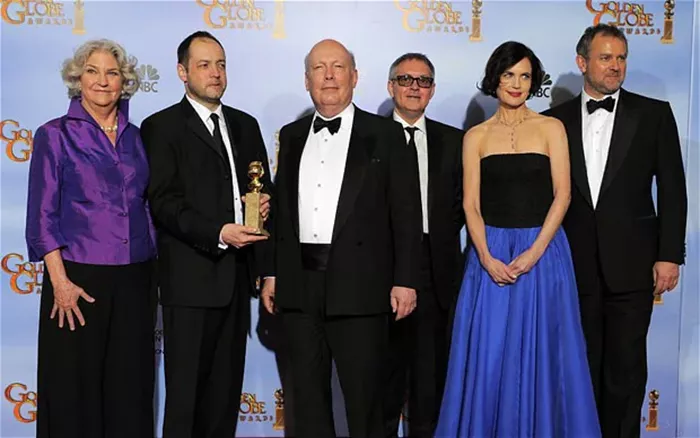“Downton Abbey” is more than just a British period drama. It is a global phenomenon that captivated millions with its rich storytelling, complex characters, and elegant portrayal of aristocratic life in early 20th-century England. Created by Julian Fellowes, the series premiered in 2010 and soon earned critical acclaim and a devoted fan base worldwide.
Among its many accolades, “Downton Abbey” made a strong impression at the Golden Globe Awards. The series’ recognition at these prestigious awards helped solidify its reputation not only as a British success story but as an international television masterpiece. This article explores the full journey of “Downton Abbey” at the Golden Globes, including its wins, notable nominations, and cultural impact.
The Debut and Immediate Recognition
Golden Globe Breakthrough
When “Downton Abbey” first aired, it quickly garnered attention from award bodies, including the Hollywood Foreign Press Association. The show’s first season introduced audiences to the Crawley family and their estate, capturing themes of social change, class tension, and personal drama.
The series’ high production value and sharp writing led to its early nomination for the Golden Globe Awards. In 2012, “Downton Abbey” won the Golden Globe for Best Miniseries or Motion Picture Made for Television. This victory established the show’s presence in the awards circuit and highlighted its ability to compete on an international scale.
A Strong Cast Rewarded
The show’s ensemble cast, including Hugh Bonneville, Elizabeth McGovern, and Michelle Dockery, earned several individual nominations. Maggie Smith, who portrayed the witty and sharp-tongued Dowager Countess, stood out with multiple nods. Her performance became iconic, often cited in discussions about the show’s awards success.
The recognition of the cast at the Golden Globes reflected the strength of the performances and the depth of character development that “Downton Abbey” consistently delivered.
Nominations That Cemented Its Legacy
Consistent Golden Globe Nominees
“Downton Abbey” became a regular contender at the Golden Globes during its six-season run. It was often listed among the top Golden Globe Nominees, competing against shows like “The Crown,” “Game of Thrones,” and “The Good Wife.”
Its repeated nominations underscored the show’s ongoing relevance and consistent quality. Notably, the show received Golden Globe nominations for Best Miniseries or Motion Picture Made for Television and Best Performance by an Actress in a Television Series – Drama.
Highlighting British Television
These nominations played a key role in promoting British television across the globe. At a time when American productions dominated the awards landscape, “Downton Abbey” showed that British drama could achieve critical success and mainstream appeal.
The show’s presence among high-profile nominees also influenced future projects, encouraging producers and networks to invest in quality period dramas with international potential.
Wins That Made History
2012: A Landmark Year
The 69th Golden Globe Awards marked a turning point for “Downton Abbey.” The series won Best Miniseries or Motion Picture Made for Television, while its lead actress, Maggie Smith, won Best Supporting Actress.
These awards were more than just trophies; they were statements of excellence. They highlighted how a show rooted in Edwardian England could resonate with modern audiences worldwide.
Recognition Beyond the Series
The success at the Golden Globes paved the way for other awards, including the Primetime Emmys and the Screen Actors Guild Awards. The show’s performance at the Golden Globes helped elevate its prestige and expand its audience globally.
The wins also opened doors for the cast members, many of whom went on to significant roles in film and television, further spreading the influence of “Downton Abbey.”
The Cultural Impact of Golden Globe Recognition
Boost in Viewership
Following its Golden Globe victories, “Downton Abbey” experienced a notable increase in viewership, especially in the United States. PBS Masterpiece saw a significant surge in interest, with more Americans tuning in to follow the saga of the Crawley family.
The recognition also encouraged international streaming platforms to acquire broadcasting rights, expanding the show’s reach to new audiences around the world.
A Period Drama for the Global Age
The Golden Globes helped position “Downton Abbey” as a benchmark for quality television. Its success demonstrated the universal appeal of human stories told through a historical lens, which inspired similar productions and contributed to a revival of period dramas in mainstream media.
From fashion to tourism, the show’s influence was far-reaching. Highclere Castle, the real-life location of Downton Abbey, saw a dramatic rise in visitors, thanks to the series’ international fame.
The Downton Abbey Films and Their Awards Journey
Transitioning to the Big Screen
In 2019, “Downton Abbey” transitioned from the small screen to the silver screen. The film continuation of the series picked up where the show left off and was well-received by critics and fans alike.
Although it didn’t receive Golden Globe Awards like the series, it maintained the same high standards and demonstrated the enduring popularity of the Downton franchise.
Legacy Strengthened by Awards
While the film’s awards journey did not mirror the series’ Golden Globe success, it added to the franchise’s legacy. The production values, performances, and writing kept the spirit of “Downton Abbey” alive and relevant, reaffirming its status as one of the most beloved dramas in recent television history.
Conclusion
“Downton Abbey” left a significant mark on the Golden Globes. Its wins and nominations showcased the show’s excellence and solidified its reputation as a global entertainment treasure.
The awards not only honored the work of the cast and crew but also played a pivotal role in changing the global perception of British television dramas. “Downton Abbey” became a model for storytelling, production, and cultural impact.

